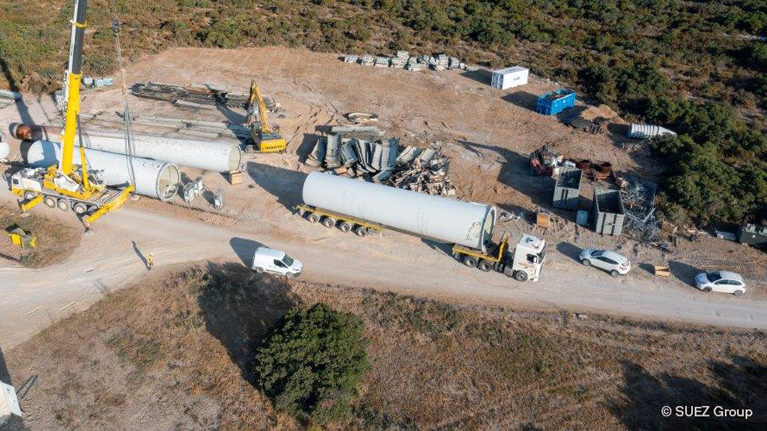Tekniker optimises the recycling of wind power blades
The technology centre is developing several advanced solutions to enhance the circular economy of wind turbine generators (WTGs) within the framework of the European Rewind project.

Although wind provides an infinite source of renewable energy, WTGs have finite life cycles. Consequently, and as life cycles usually last between 20 and 25 years, a large proportion of Europe’s WTG fleet will reach the end of its operating life in the next 10 to 15 years with Denmark, Spain and Portugal as the countries where some of Europe’s oldest wind farms are in operation.
It will be this year when the Tekniker technology centre will join the European Rewind project funded by the EU’s Horizon Europe programme and the CINEA (European Climate, Infrastructure and Environment Executive Agency).
The main goal of this initiative is to develop technologies that are critical to dismantle WTG blades once they reach the end of their life cycles and to implement new methodologies to reutilise and recycle composite materials to properly address the challenge of increasing their circularity.
Potential high-added value applications for the materials to be recycled shall be approached by manufacturing two demonstrators that will be developed for the construction and automotive sectors that are increasingly demanding circular economy solutions to reduce their environmental impact.
It is expected, for instance, that the Rewind project will allow WTG blades to be reutilised to manufacture insulating panels for buildings and electric vehicles.
As regards Tekniker’s contribution in terms of this initiative, the organisation has focused on developing software tools to simplify the cutting of WTG blades and recycling of fragments in other applications to reduce processing as much as possible.
In fact, Tekniker will apply several cutting technologies (laser, conventional machining, ultrasounds, etc.) to adapt the material to the definitive demonstrators.
Lastly, the Tekniker team will develop the advanced LFD delamination process that cuts pieces of composite materials into thin strips measuring over 40 mm to obtain recycled fibres with better mechanical properties.
Rewind will also evaluate environmental and social impacts, costs and the circularity of demonstrators compared with those already existing before replacing materials.
The consortium, led by AIMPLAS, is formed by 14 partners from 7 countries (including Tekniker): IPC - Centre Technique Industriel de la Plasturgie et des Composites, Miljøskærm, Hochschule Pforzheim - Gestaltung, Technik, Wirtschaft und Recht, Deutsche Institute für Textil- und Faserforschung Denkendorf (DITF), Alke Electric Vehicles, Suez Group, bCircular, Composite Patch, CiaoTech - Gruppo PNO, TPI Composites, Inc., and AEMAC (Asociación Española de Materiales Compuestos).
More information available on the REWIND project website.
Funded by the European Union. Grant Agreement Nº101147226 - REWIND - HORIZON-CL5-2023-D3-02
